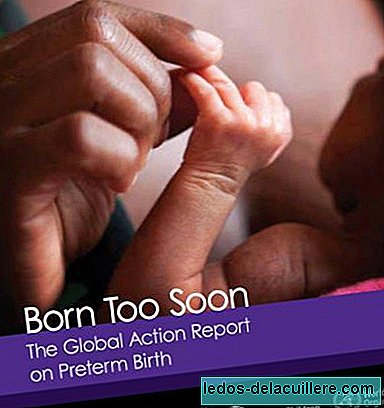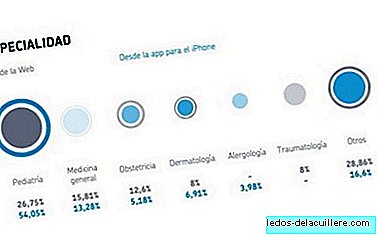
Can anything be done to avoid the growing number of premature births? And to ensure the survival of these babies? Of the 150 million children born every year in the world, just over 10% do so before the nine months of gestation. Of them, one in 15 does not reach the year of life in the world, according to the WHO report “Born Too Soon”.
It's about a Global Action Report on Premature Births, recently published by the Organization, which explains what is known about premature birth, its causes and the type of care needed.
Likewise, it highlights the vulnerability of premature babies, emphasizing this health problem, which is essential to tackle as part of the fourth Millennium Goals: reduce two-thirds of child deaths in the world in 2015.
The figures on the survival of premature babies are bleak: more than one million of these babies die shortly after birth; Many others suffer some kind of physical, neurological or educational disability, often at great cost to families and society.
However, about 75% of these premature babies who die could survive without costly care, if simple, proven and economical treatments (such as the kangaroo method) were available, as well as preventive measures.
In the report, which can be consulted in full on-line (in English), a detailed plan is offered for the necessary actions in order to reduce the number of deaths and premature births.
This set of clear actions to help accelerate global progress with regard to premature births does not take away from the importance of prevention, and the necessary investigation of the risk factors of premature births, so difficult to predict today. .
The map of prematurity in the world
As with so many other figures, in the case of premature births, developing countries also stand out. Of the 11 countries with preterm birth rates greater than 15%, all but two are in sub-Saharan Africa.
Premature births represent 11'1% of the world's live births, 60% of them in South Asia and sub-Saharan Africa. In the poorest countries, on average, 12% of babies are born too soon, compared to 9% in higher-income countries.
The rate of premature births per 100 births ranges from 18'1 in Malawi to 4'1 in Belarus. In Spain, the figure is 7'4 premature births per hundred births (Venezuela 8'1, Argentina 8, Mexico 7'3 ...).
With respect to the survival of premature babies, in rich countries half of the 24-week-old babies survive, in poor countries they do not even half of those born at 32 weeks (“seven months”). And it is in those with less gestation time (less than 28 weeks) where technological and medical development has the greatest influence: 90% of those born in the richest countries survive. Only 10% in the poorest.
The WHO report “Born too soon” It has been prepared by more than 100 experts representing almost 40 United Nations agencies, universities and organizations, including Save the Children. A wake-up call about this problem that deserves to be considered, investigated further and treated worldwide.












